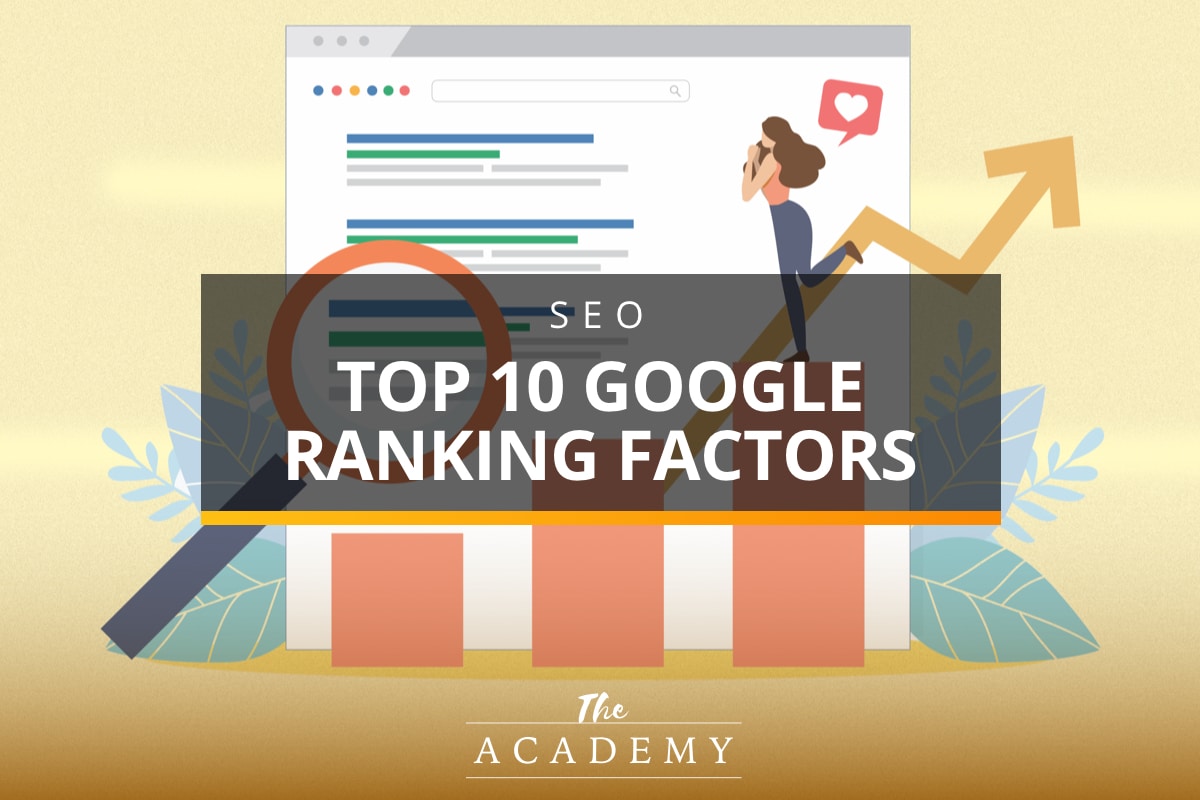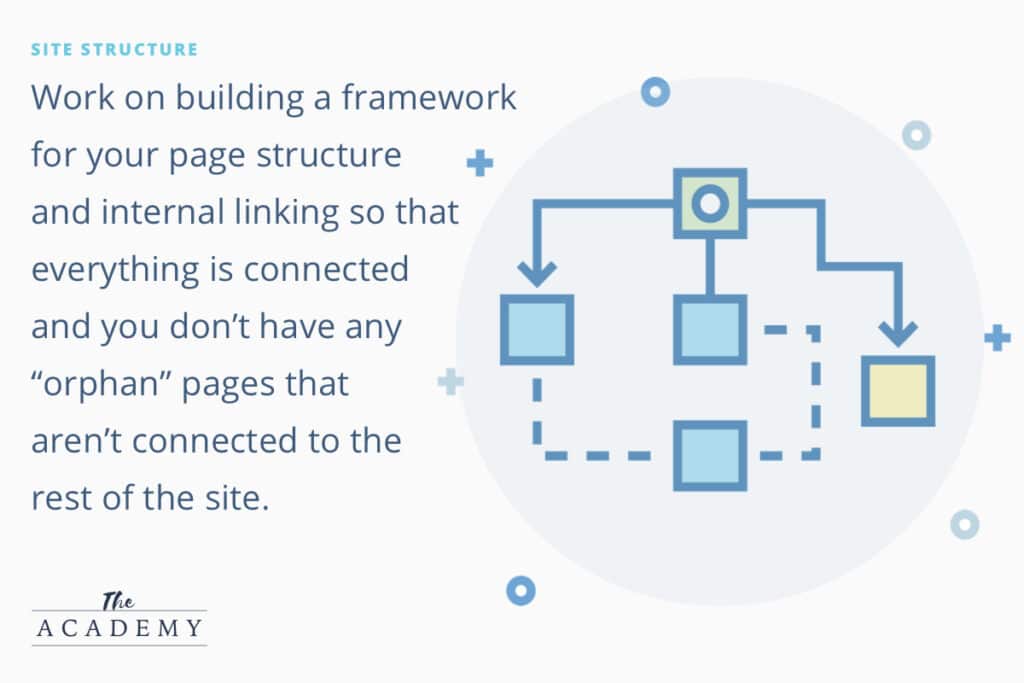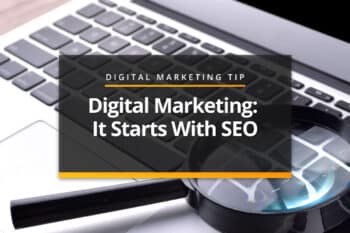
Ranking high in the Google search results for important keywords in your industry is a major goal for virtually every marketing department. While it’s not quite “free” traffic, (you do have to work for your rankings) visits that flow to your website from organic searches are very low-cost and can give you a huge advantage over the competition.
Of course, every business in your niche would love to rank for key search terms, so there is sure to be plenty of competition. Focusing your search engine optimization efforts on the factors that seem to be important to Google is a wise way to spend time in this area. Let’s take a look below at the ten factors that appear to be most important in the eyes of Google.
One Important Note
Before we dive into the list of ten ranking factors, it’s important to provide one quick note – the exact ranking algorithm that Google uses to determine where pages rank in the search results is not known publicly. While Google will occasionally provide some basic guidance, and there are plenty of tests that have been performed to evaluate what matters in the world of search, there is always an element of guesswork that goes into the SEO process.
With that said, it’s still worth working on the various factors that are known to play at least some role in how the rankings work out. Consistent, strategic effort over time is likely to pay off nicely for you and your business.
#1 – Content
Simply put, adding quality content to your site is the best thing you can do for your overall ranking efforts. You want the content that you add to your site to be well-written, informative, approachable, and trustworthy. If you are falling short in terms of the quality of content that is present from some of the competitors in your niche, you’ll never be able to keep up in the race for the top of the rankings.
Many sites fall short of their potential in terms of content quality simply because it is hard to produce great content that people will want to read. This is almost certainly going to be the part of the SEO process that requires the most effort, so plan on spending plenty of energy – and money – in this area if you hope to see results. Read each piece of content you produce with an open mind and ask yourself how it could be a little bit better. Making constant, consistent improvements to the quality of your content just may give you a leg up on the competition.
#2 – Demonstrate Expertise
With so many sites and pages across the web for Google to consider, you need to give the search bots a reason to value what you have to say. If you are seen by the algorithm as an expert in your niche, it’s far more likely that your pages will move higher in the results.
One of the best ways to establish authority in your niche is by consistently posting content on related topics. You can build a “cluster” of content around various topics that are relevant to your market, and over time, your site will start to become a respected source of useful information in the space. For instance, if you have a business that sells running gear, you could have content clusters around topics like running shoes, running shorts, hats, nutrition, etc. As the catalog of content pages grows, you’ll find yourself with more and more authority in that market.
#3 – Handle Images Properly
It’s no secret that images can go a long way toward helping the quality of your pages, but it might not seem like they are particularly relevant to SEO. That’s not the case, however. Handling your images correctly can have a big impact for a variety of reasons. First, you’ll need to give your image an alt text, as this text is what the search bots will see, rather than the image itself. Make sure every image on your site has an alt tag in place.
Also, compression is key, as big images take a long time to load and slow-loading pages can be a drain on your rankings (more on that later). Fortunately, it’s quick and easy to put your images through a compression tool before they land on your site. This way, they won’t weigh down load times while still making the pages more attractive and enjoyable to navigate.
#4 – Use the Right Keywords
This is probably the point you expected to see at the start of the list, and it certainly is an important one. In many ways, keywords are what drives SEO – you need to have the right words on your pages in order to have any chance at ranking for the terms that are most important to your business. So, targeting keywords remains as important as ever, and you should be very clear on what keywords you are targeting with each piece of content you publish.
With that said, gone are the days when a single-minded approach to SEO would do any good. If you focus on packing your pages with keywords and pay attention to little else, you will not get results. Optimizing for search these days is about far more than just keywords, so while they remain foundational to the process, you can’t sit back and assume that good keywords alone will get you where you want to go.
#5 – Mobile Friendly Design
Speaking of things that have changed in the SEO world since the beginnings of this industry, mobile-friendly design wasn’t a topic that needed to be considered twenty years ago – but it’s extremely important today. It’s likely that more than half of your site’s visitors will be using a mobile device when visiting your pages, so building those pages so they will work properly on phones and tablets is essential.
Not only will your site not offer a very good experience to the visitor if it isn’t mobile-friendly, but you might struggle to get traction in the search rankings, as well. Pages that haven’t been optimized for mobile tend to load slowly on those devices and they may be hard to read and use. Put some time and effort into confirming that your site is as nice on mobile as it is on a desktop or laptop computer.
#6 – Site Structure
Out of the ten points we are including in this list, site structure might be the one that is easiest to overlook. Simply put, most site owners and managers don’t give this point much thought when they are working on SEO – but it’s an important point and one that can help you with more than search rankings.
The idea here is that your site should be easy to navigate. When humans come to your site, they should easily find the pages that interest them without delay. At the same time, Google search bots should easily be able to crawl the whole site and index it promptly. Work on building a framework for your page structure and internal linking so that everything is connected and you don’t have any “orphan” pages that aren’t connected to the rest of the site.

Here’s a good rule of thumb – try to build your site in a way that you can get to any other page after just three clicks. It might not be possible to quite reach this goal, depending on the size of your site, but it’s a good target and will help you build a streamlined, simplified structure for your site.
#7 – Page Speed
In recent years, page speed has been all the rage in the SEO world. It’s no secret that Google values pages that load fast, as this is seen as a positive point for user experience. And, that stands to reason – when using the internet for personal reasons, you probably prefer it when sites load quickly. If the page takes too long, you might just give up before the content even loads.
You can spend a lot of time optimizing your pages for site speed, but it’s best to keep things simple. For starters, make sure your images are optimized (as mentioned above) so they don’t slow down load times. Also, if you are using WordPress, keep the number of plugins on your site to a minimum, as using too many plugins will also slow things down. Finally, make sure your hosting is living up to expectations, and consider switching hosts or upgrading to a better package if page data is slow to be delivered to visitors.
#8 – Inbound Links
This is a big one. You might hear this point referred to as “backlinks” rather than inbound links, but it all means the same thing – links that are pointing to your site from other sites around the web. When another website links to you, it is seen as a vote of confidence that someone else likes what you have produced. If you are able to gather many links from various respected sites, those links will do wonders for your rankings.
Of course, you don’t have as much control over this point as you do some of the other ones. While you can reach out to other sites and ask them to link to one of your pages, that technique will produce limited results. Perhaps the best thing you can do to attract inbound links is simply to produce great content that people will naturally want to link to because it adds so much value to the discussion.
#9 – SSL Certificate
For the easiest point on our list, look no further than installing an SSL certificate on your domain. When an SSL certificate is active, your site will display an “https” prefix in the address bar. Think of this point as something you just need to check off as a fundamental element of SEO. You aren’t going to get a big boost from this step – since most of your competitors are doing it already – but it will help prevent you from being hurt in the rankings by missing such a simple step.
#10 – Core Web Vitals Standards
Finally, meeting Google’s expectations with regard to what it calls Core Web Vitals is another important element to keep in mind. You can use various tools and techniques to improve your performance on Core Web Vitals, and you can test your performance at any time to see how your site is doing and determine where it could be improved.
Search engine optimization is the type of race that doesn’t really have a finish line. Your SEO efforts will never really be done, as there are always competitors out there working hard to unseat you from the top of the rankings. By focusing on what is important and building a quality site that serves human visitors as much as search engine bots, you will hopefully be able to retain some lofty rankings for years to come. Good luck!
Most Popular Articles

Seeing Favicons in Your Google Search Results? Here’s Why…
Have you noticed anything different in your Google Search results lately? Google added tiny favicon icons to its organic search results in January. It was…

Business Growth and Digital Marketing News & Tips 11-17-24
Are you encouraging and rewarding innovation? Lee Cockerell is the former Executive Vice President of Operations at Walt Disney World. A lover of traditional red…

Business Growth and Digital Marketing News & Tips 11-27-24
A culture of gratitude "Feeling gratitude and not expressing it is like wrapping a present and not giving it." – William Arthur Ward Beyond being…








